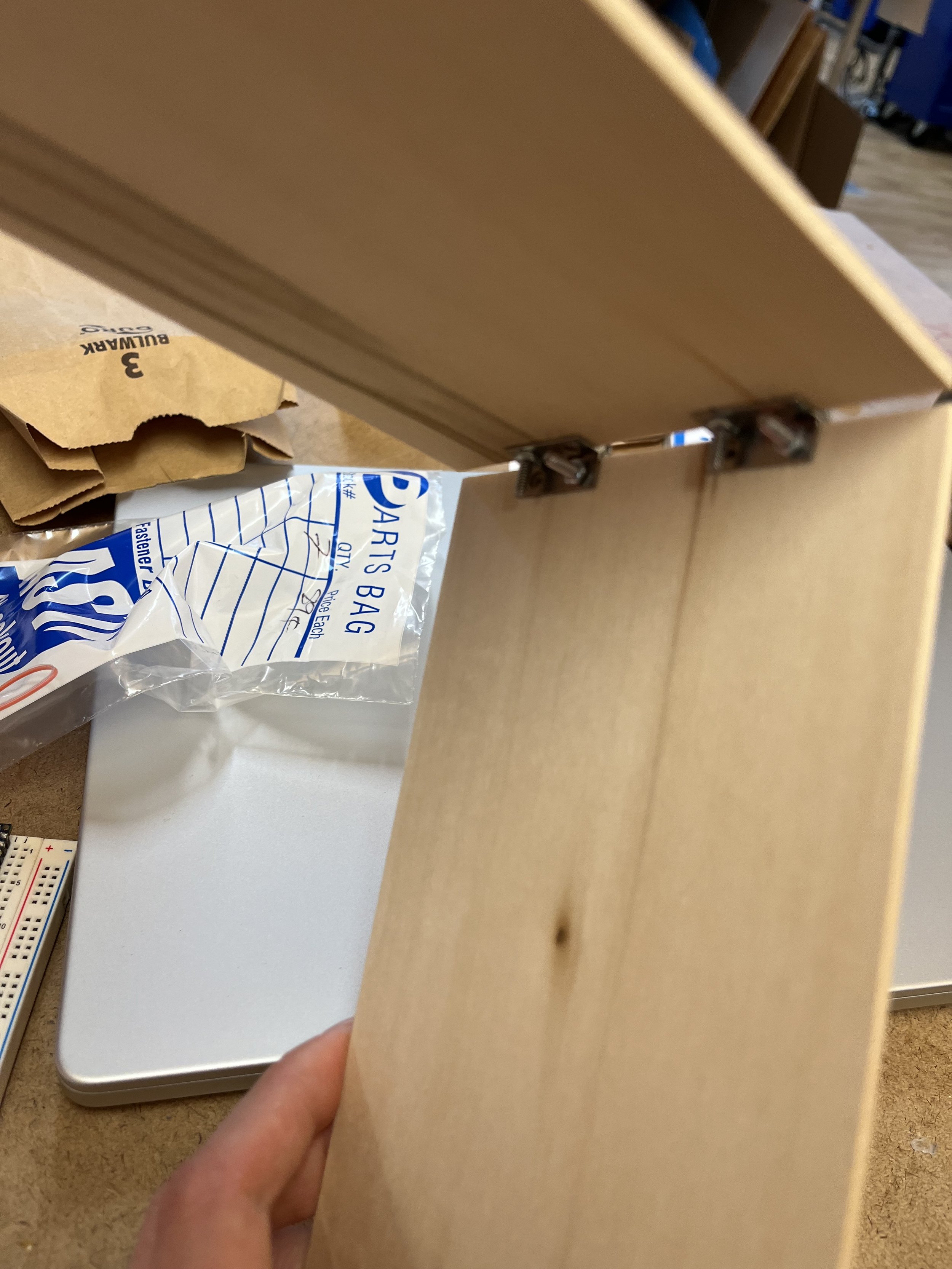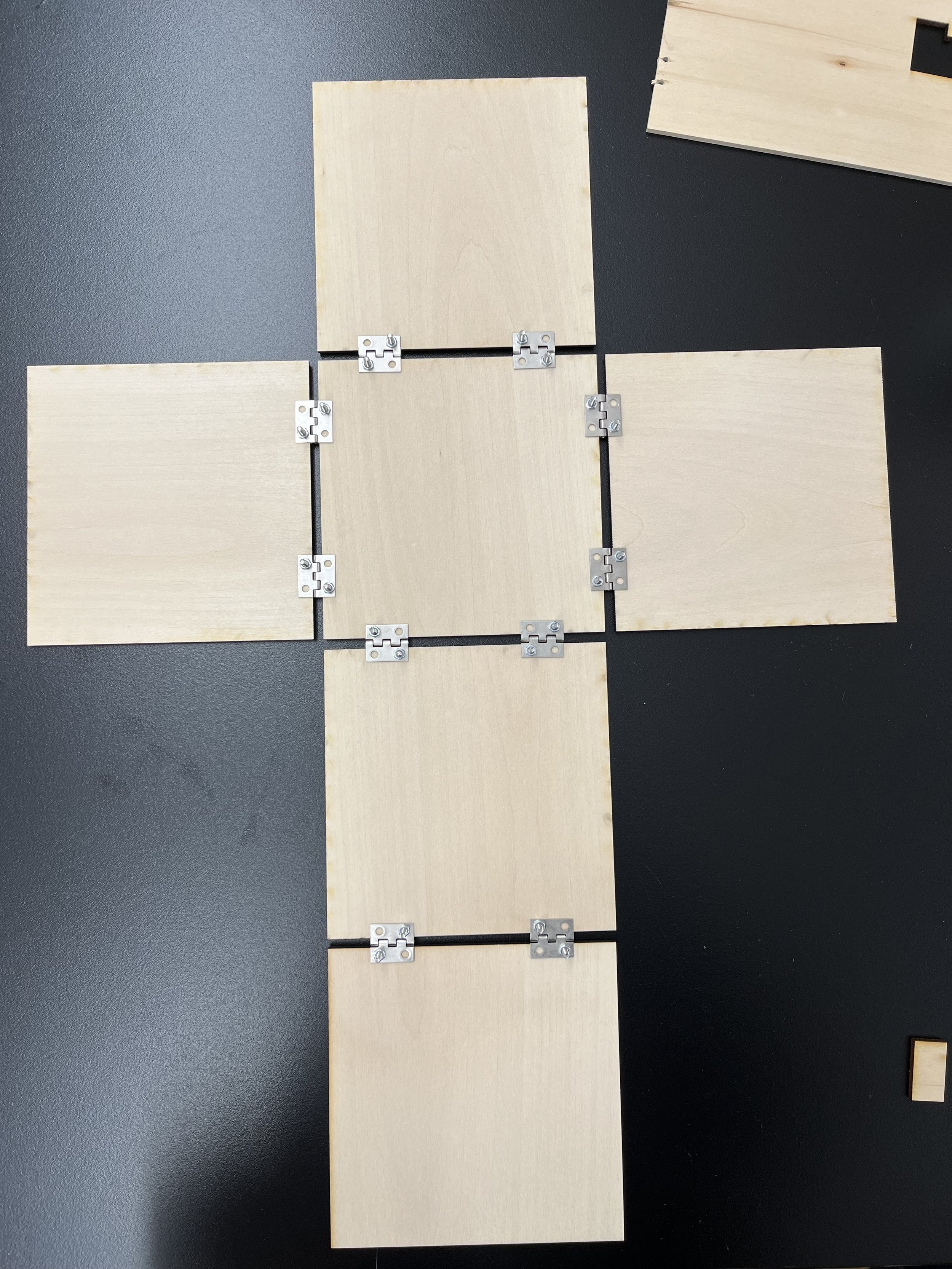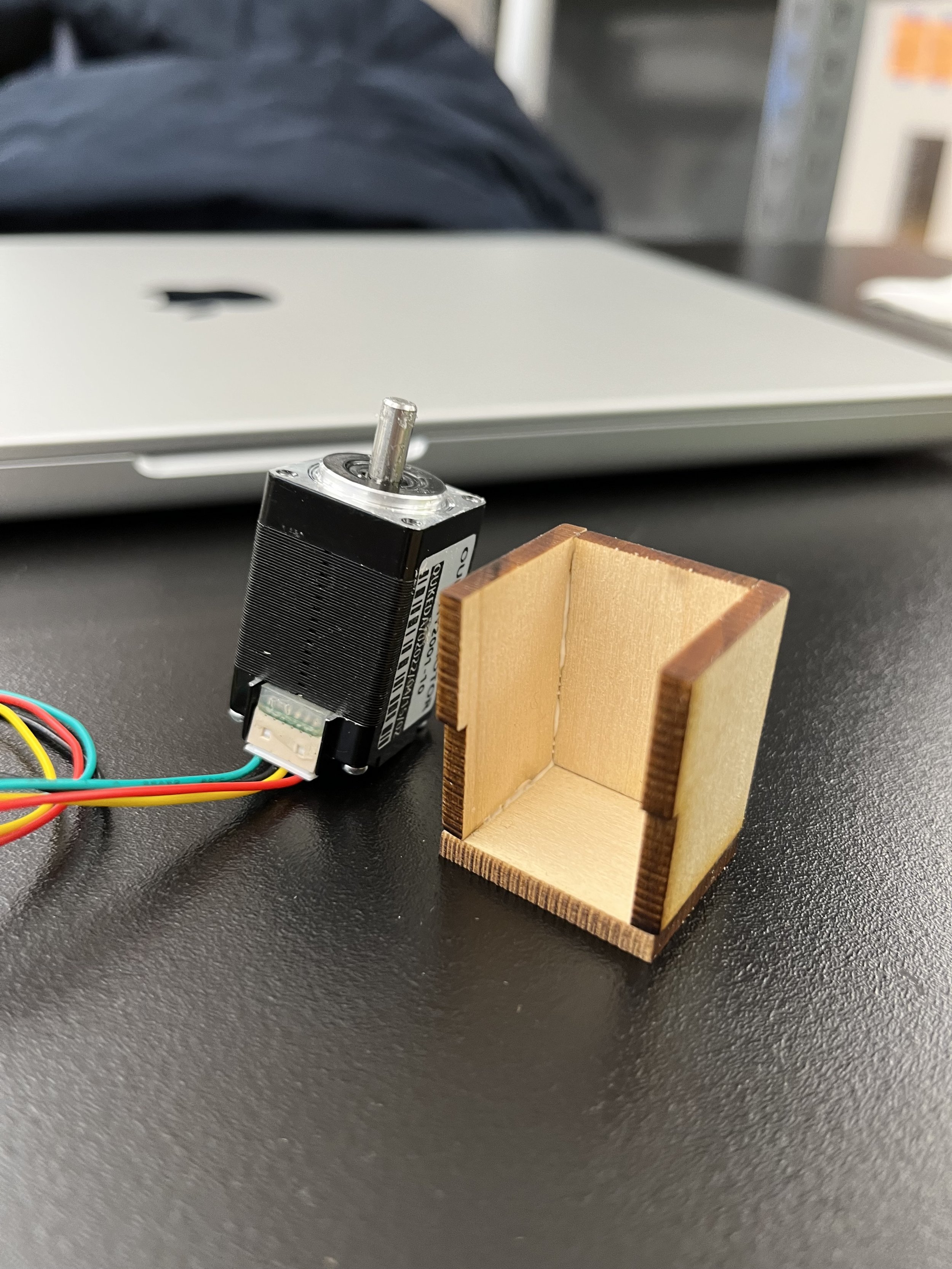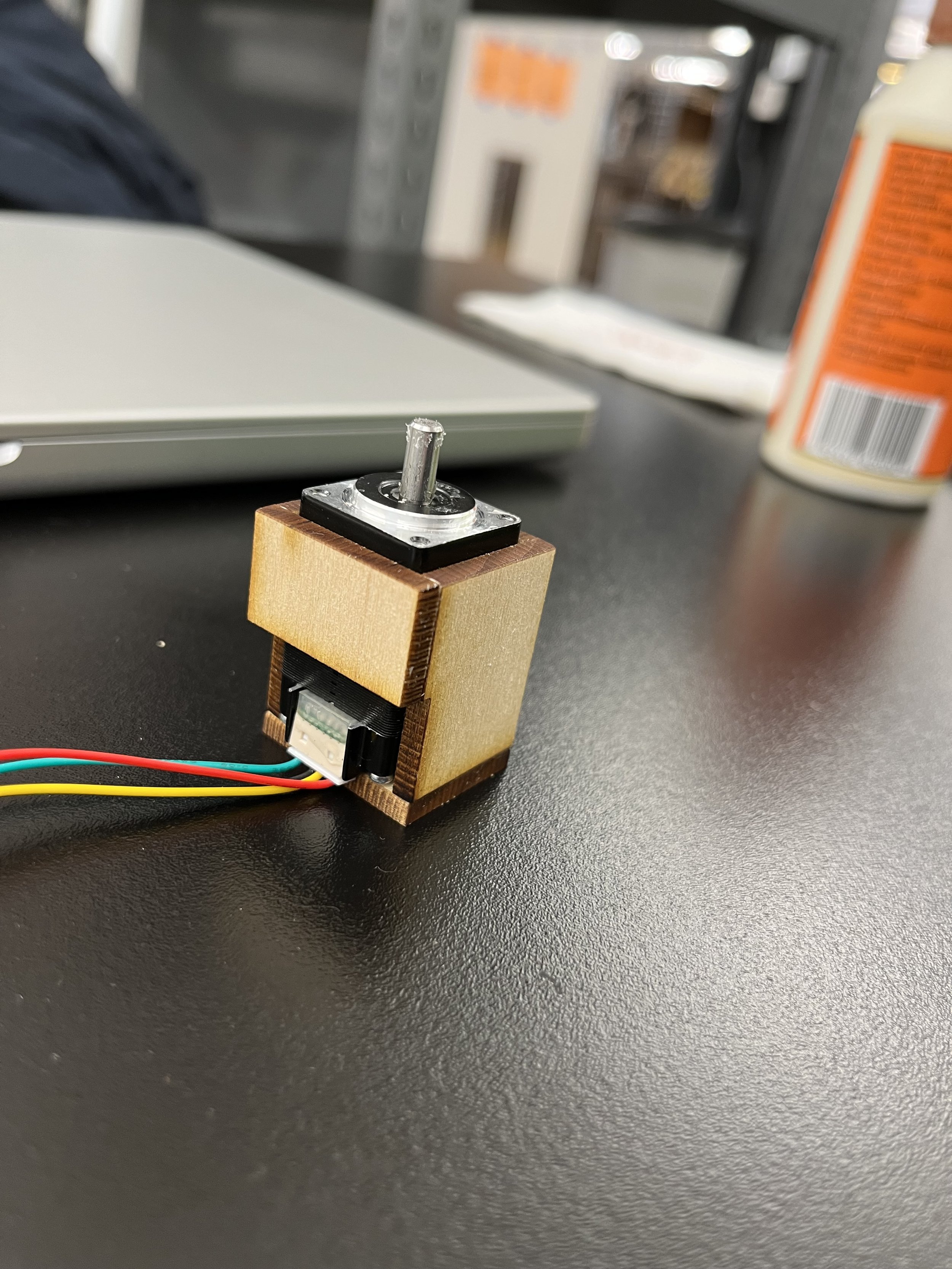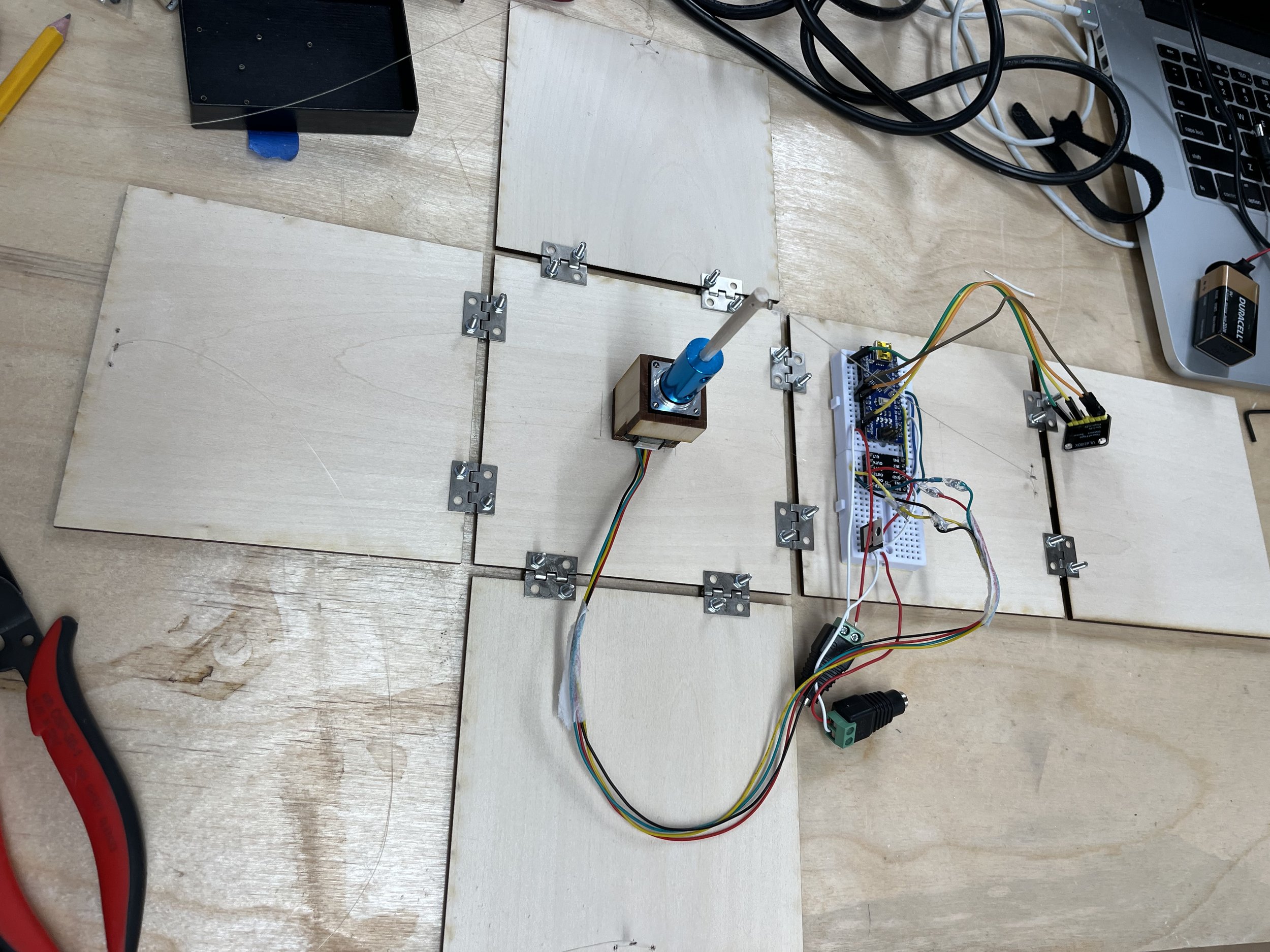VIVIDIUM
A Box that Unrolls Itself
Spring 2023
Course: Intangible Interaction
Instructor: Yeseul Song
Partner: Alina Liu
Introduction + Ideation
We were tasked with creating an object that engages with its user in an intangible manner. After deliberation, we settled on crafting a box that seamlessly transforms from a 3D structure to a 2D surface when triggered by interaction. Ideally, the box reacts to the proximity of the user, appearing as if it is getting "scared" and subsequently initiating the unrolling process.
figure 3 - detail
figure 1 - sketch
Implementation
Our primary sensor options are either a PIR motion sensor or a time-of-flight sensor, strategically placed on one or more sides of the box to detect users.
Two motors will be employed, both mounted on surface C. Motor 1 will connect surfaces A, B, and F, while Motor 2 will connect surface E. Each motor will extend or retract a specific length, contributing to the rolling or unrolling of the box. The Arduino, breadboard, power source, and wires will be neatly arranged inside the box for a tidy and presentable layout.
For the box material, we've opted for transparent acrylic, and the connections will be facilitated by durable metal hinges.
We purchased hinges from a local hardware store and proceeded to laser cut six pieces of basswood, each measuring 5" x 5". The assembly of the box was completed, and a small cage was crafted to secure the stepper motor's position on the bottom piece of wood.
figure 4 - connection
Conclusion
The outcome was excellent. The time-of-flight sensor is functioning well, and fishlines were incorporated to facilitate the retraction of the sides. The connections are robust and durable. To ensure the box consistently opens smoothly, we realigned the hinges and added two springs. Our next steps involve adjusting the speed, introducing additional movements during retraction, and applying paint to enhance the box's overall presentation.
figure 5 - interior of the box
figure 3 - shelter for motor
figure 4 - shelter for motor
video 1 - operation
figure 2 - simplified mechanism in plan and section


